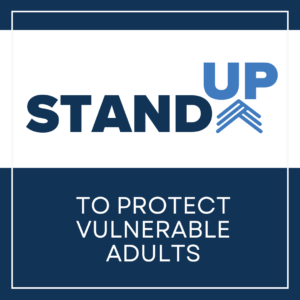Barna research indicates that more than 60% of Christians became believers before the age of 14, indicating how vitally important a youth a children’s ministry can be in young people’s lives. The influence of your children’s ministry is far-reaching and eternal.
Your ministry not only provides for children on weekends, but must also deal with special events, both on and off campus. A weeklong VBS on campus, a trip to a theme park for the day, or a junior and senior high beach trip are just a few of the special events that many churches hold. How do you effectively protect and watch over children during these events?
If you are a small church and have no security or safety personnel, that responsibility will fall to you. Unless you have each participant sign a waiver, you may be held legally liable for any harm that befalls those who are hurt during the course of the event, not to mention the spiritual harm that may result if there is an instance of abuse or neglect on your ministry’s watch.
I would suggest contacting a church within your denomination or association, or even in your town or city that has a security director for help. Another resource is your insurance company. Most houses of worship are insured, either fully or partially, by one of the three or four largest church insurance companies. They may have a consultant on staff or one that is available within your area. Many churches now have someone in charge of safety and security and your relationship with that person is vital. Include them in the earliest discussions of any special event. Let’s look at examples of events and some of the safety considerations that go with them.
Special Event Example #1
The school year is ending and plans to kick-off new programming for the fall are in the works. The team has decided that they will host a Labor Day children’s event that the community will be invited to. This would be a great outreach as well. The event will run from 11:00am-1:00pm. A church parking lot will be turned into a fun zone with large inflatables and games. A few of the inflatables will integrate water slides with landing pools filled with about 2 feet of water. Hot dogs and hamburgers will be available for purchase from a local vendor.
Create a spreadsheet, or list, of all volunteer positions needed to provide a safe and secure venue. Here are a few suggestions:
Parking Lot
Consider these positions as greeters and front-line security. Equip them with radios to notify security or your team lead about any suspicious activity.
Perimeter Security
Position people around the event to watch for wandering children or any suspicious activity involving adults and children.
Greeters/Hosts
Greet people as they enter the fun zone and walk around the venue as a church representative while looking for unusual activity.
Inflatable Attendant
Have a safety volunteer stationed at the base of each inflatable.
Event Security
Hire at least one uniformed off-duty law enforcement officer. In case of an emergency the officer has direct communication with his agency to coordinate police and EMS response. In addition, you’ll need a team of volunteer security personnel to patrol the event.
Medical
Set-up a small tent (10×10) on the edge of the parking lot staffed with one or two volunteer medical personnel. They’ll be attending to the scrapes and minor injuries. Be prepared for heat related illness if the temperature is high. This could also serve as a lost child reporting station in case a child is separated from their parents. The tent may also have epi-pens available as well as sunblock if needed.
Communication
Equip leaders and key volunteers with radios. Large churches will use commercial hand-held radios while smaller church may use “family channel” radios. Instant communication is vital in an emergency.
Now that you’ve defined the positions and how many volunteers you’ll need, it’s time to fill those slots. Inevitably we do not have enough volunteers. Get started early to recruit, clear, and train. I recommend 8 steps that are needed before someone is allowed to work with children, newborn through 17 years of age (see ECAP Standard 3: Screening).
- Waiting Period
Have a minimum attendance requirement of 3 months church attendance. Abusers want quick access to children.
- Background Check
Use a reputable company and request National criminal and sex offender registry checks.
- Reference Checks
Gather 3 names and contact information, a relative, co-worker and friend and call every one of them. No exceptions.
- Applicant Interview
Have a face-to-face interview. You may pick-up something a phone interview will not detect.
- Sexual Abuse Prevention Training
Seek quality training. Ask your insurance company and other churches for recommendations.
- Policies and Procedures
Include safety and security protocols during this training. Keep records of all training.
- First Aid, CPR, and AED Training
Get training from a certified trainer or your local Red Cross.
- Shadowing / Supervision
Have the new volunteer shadow a volunteer for 2-3 weekends.
Prior to the event the security director will meet with the off-duty officer, volunteer security and medical teams, to determine positioning as well as how to report and respond to an incident. If you don’t have a security director, then appoint a lead security volunteer who will oversee the meeting and the team.
After the event gather all staff and team leads to debrief before leaving the venue. This meeting is short but necessary to talk about any problems or issues that need to be taken care of. A second meeting will be held when getting back into your office which will allow more time to discuss the day’s activity.
Special Event Example #2 (see ECAP’s Summer Camp Guidelines Resource)
Your junior and senior high ministry has been invited to attend a week at a beach during spring break by a Christian organization. The location is about a 10-hour drive from your church. The organization will have a venue where worship and bible teaching will occur each morning and evening. There will be open swim times every afternoon. Your responsibility is to provide transportation, lodging and food for your group. You must also bring enough adults to watch over the teenagers.
These events typically number from 500 to 2,000 students. This does not include the hundreds of adults accompanying the groups.
Security professionals always conduct a security advance trip prior to the actual trip. In this example this would involve driving the route, meeting with those overseeing lodging arrangements or hotel management, visiting the worship venue, the nearest medical facility and pharmacy. This may not be possible if you are in a small church bringing only a few students, but you should make phone calls to representatives of the listed locations. If you are bringing a large group your security director will facilitate the visit. I would strongly suggest you accompany him/her on the trip. The security director will also contact local law enforcement for introduction and a point of contact.
It is your responsibility to protect the students in your care. Decisions you make, however small they seem at the time, can have lasting consequences. Always err on the side of caution for the safety and security of everyone.
Contact the organizers and ask where the groups are staying. What precautions have been made for medical emergencies and security concerns? Are meals provided and how will students get to and from the worship venue?
Are medical services handled by on-site medical professionals and if so, how do you contact them? Speak to the person in charge of security with the organizing agency. Ask what security is provided at the worship venue, your hotel, and the beach area. Exchange cell phone numbers with medical and security leads. Are there lifeguards on duty during swim time? If not, see if it can be arranged.
Most churches will use a couple of vans for transportation. Do not stack any luggage or supplies on the roof of the van and do not use the older 15-passenger vans. These vehicles are “top-heavy” and are dangerous. The adult drivers should be cleared to drive by your insurance company. For safety purposes rotate drivers every 2 hours.
In most cases I would recommend you find a hotel or motel away from the larger groups but close to the worship venue and beach. It’s much easier to watch over your students. Worship, bible study, and beach time are done with all students.
Guidelines
As you noticed on both examples there was a systematic approach for planning and execution of each event. Working with security will enhance your ability to provide a safe space for children. Here are my suggested guidelines:
- Include security in initial planning
- Have security do a risk analysis to determine what resources and safety measures are needed
- Consult with your insurance company
- Provide medical and law enforcement coverage
- Staff the event with cleared and trained volunteers
- If the program is off-site do an advance trip. Meet with local law enforcement, hotel management and leadership at the nearest emergency medical facility.
- Debrief with staff and key volunteer leaders
Summary
Over the years I have consulted with hundreds of churches. When dealing with the children’s/youth ministry I always ask, “What is your relationship with your security team?” In most cases they include security after an event is planned and scheduled. Their reasoning is that security will stifle their ministry and not allow events to take place that are out of the ordinary. Security, on the other hand, then scrambles to provide services for the event which creates animosity between the ministries.
The safety of children is a priority. Ministries must work together. Security should come in with the mindset of service: “An event has been planned; how can I come alongside the group hosting it to make the event safe and secure?” Incorporating security in the initial planning phase and asking for help in creating a safe and secure event is the proper thing to do. The result is safe effective ministry that honors Christ as well as the families you serve.





